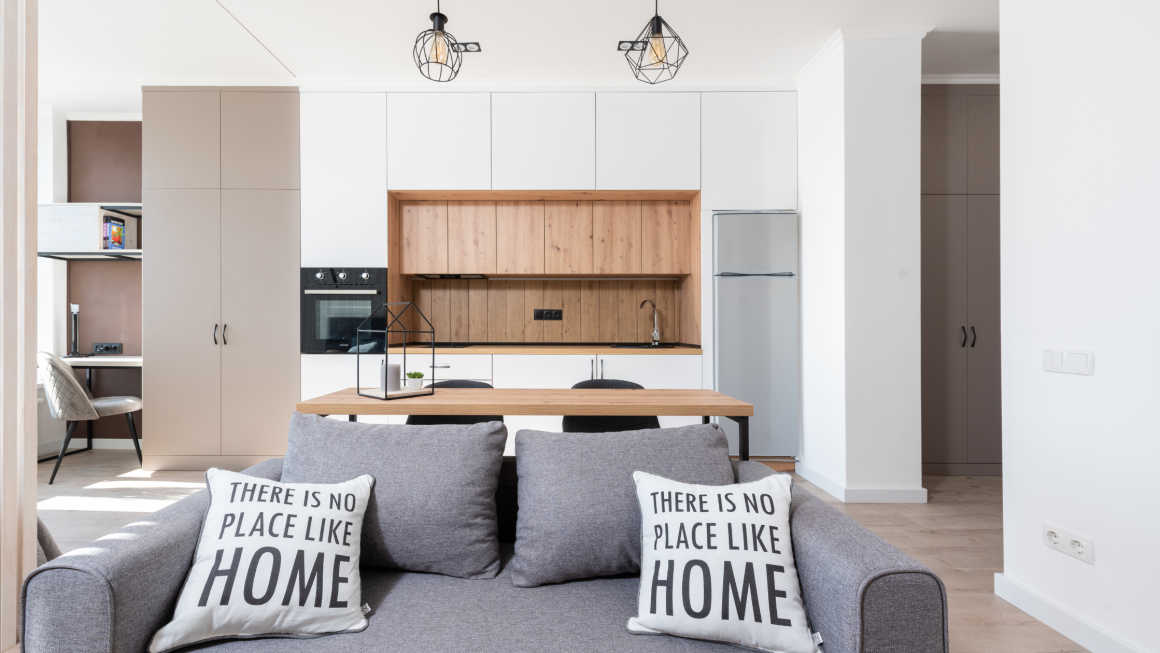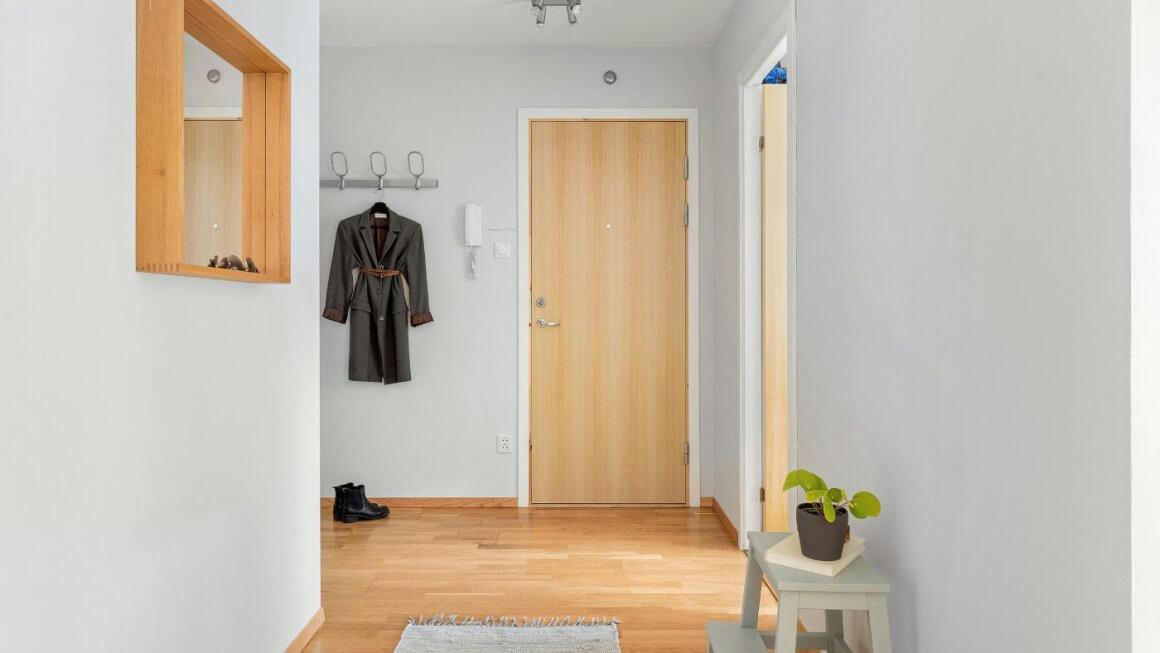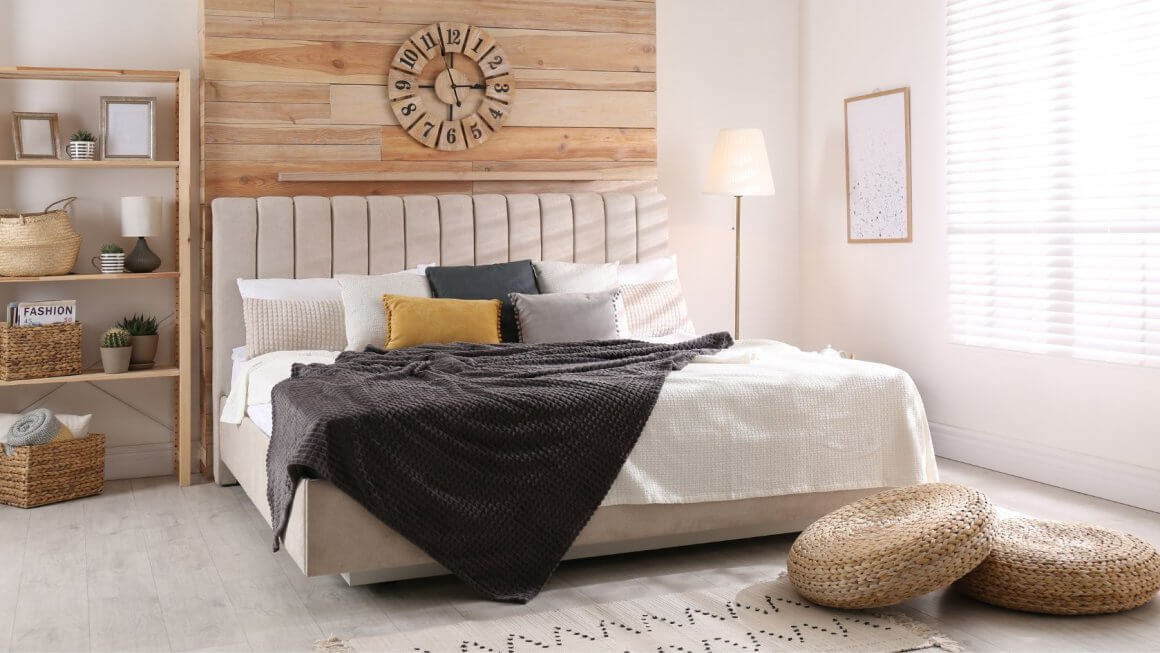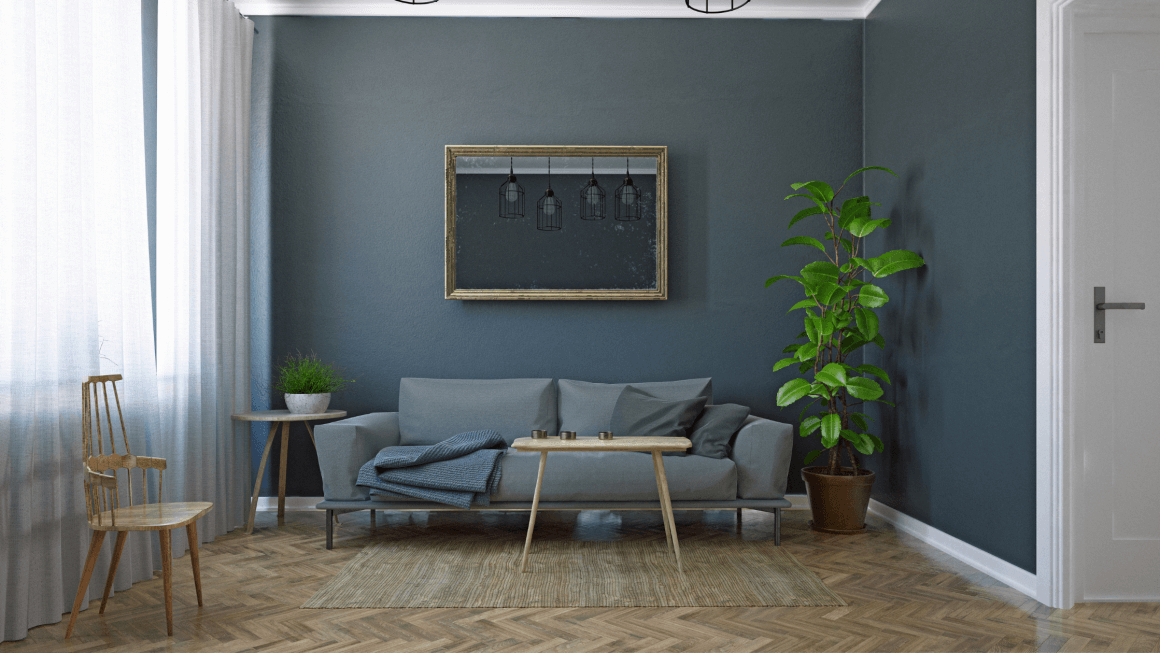Find out everything you need to know about skirting boards. And learn how to paint skirting boards like a true professional for a flawless finish.
Skirting boards, those essential trims where the wall meets the floor, can easily become scuffed and outdated over time. A fresh coat of paint can do wonders to brighten a room and showcase your interior design at its best.
But achieving a clean, professional finish requires a little prep work…
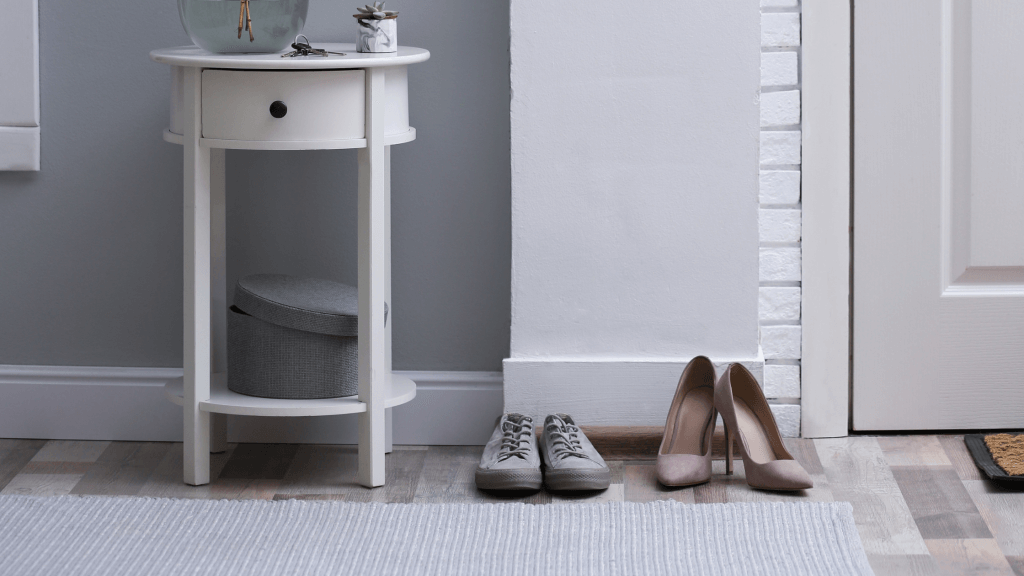
What Are Skirting Boards?
Skirting boards (also known as baseboards, mouldings or trim) are those long, narrow boards that run along the bottom perimeter of walls where they meet the floor. They serve a dual purpose: protection and aesthetics.
Protection
Skirting boards act as a barrier, shielding the lower part of your walls from scuffs, kicks, and bumps that can happen everyday such as vacuuming or moving furniture.
Aesthetics
They provide a clean and finished look to a room, creating a smooth transition between the wall and floor. Skirting boards come in various styles and profiles, adding a decorative feature that can upgrade your interior design.
Made from materials like wood (MDF or solid wood), PVC, or even metal, skirting boards are generally quite durable and can last for many years.
Discover more ways to protect your walls with our useful guides. Learn how (and why) to install a door stopper, explore quick fixes for common door problems and find out how to fix a sticking door for good.
Painting Your Skirting Boards: Preparation is Key
Protect your surroundings
Lay down dust sheets to cover your flooring and furniture.
Clean the skirting boards
Dirt and dust can prevent paint from adhering properly. Use a sugar soap solution and sponge to thoroughly clean the surface. Rinse and allow the skirting boards to dry completely before painting.
Apply painter’s tape
This is crucial to prevent paint from bleeding onto your walls. Run a line of tape along the base of the wall, as close to the skirting board as possible.
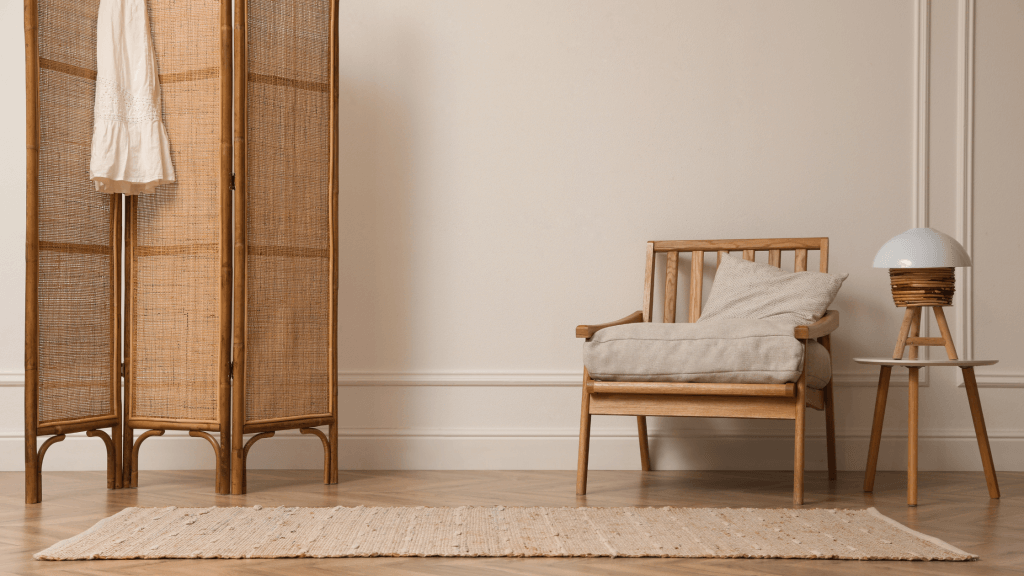
Can You Just Paint Over Skirting Boards?
Ideally, no. The best way to paint skirting boards is to prime them beforehand. However, this really depends on the condition of your skirting boards. If they’re new and unpainted, a quick coat of primer will do. Skirting boards that have seen better days may require additional preparation to achieve a professional quality finish.
Unpainted skirting boards
These are a blank canvas, perfect for applying a fresh coat of paint. However, it really is best to prime them first to create a good bonding surface for the paint.
Previously painted skirting boards in good condition
If the existing paint is well-adhered and free of major chips or cracks, you might be able to get away with a light sanding and cleaning before applying a new coat of paint.
Previously painted skirting boards in rough condition
If the existing paint is chipped, flaking, or uneven, you’ll need to do some additional prep work. This includes sanding down the rough areas, filling in any cracks or holes, and possibly applying a coat of primer to create a uniform surface for the new paint.
Skirting boards with glossy paint
Glossy paint can be very slick, making it difficult for new paint to adhere properly. In this case, sanding the surface to create a better key for the paint is crucial.
So, do you need an undercoat when painting skirting boards? Quite possibly, yes! As a general rule, if the existing paint feels smooth and secure, a light sanding and cleaning might suffice. For anything worn or damaged, take extra time to properly prepare the surface for best results.
What is the Quickest Way to Paint Skirting Boards?
Step one: Cutting in
Use a quality angled brush (around 2 inches) to paint the edges where the skirting board meets the wall. Aim for clean, crisp lines.
Step two: Filling in the centre
Use a roller for a smooth application on the larger, flat sections of the skirting board. Work in sections to avoid drips.
Step three: Two coats are better than one
Allow the first coat to dry completely before applying a second coat for a flawless finish.
Step four: Light sanding
Once the first coat is dry, use fine-grit sandpaper to lightly sand any imperfections. Wipe away dust with a damp cloth.
Step five: Touch-ups
After the second coat dries, remove the painter’s tape carefully. Address any minor mistakes with a small touch-up brush.
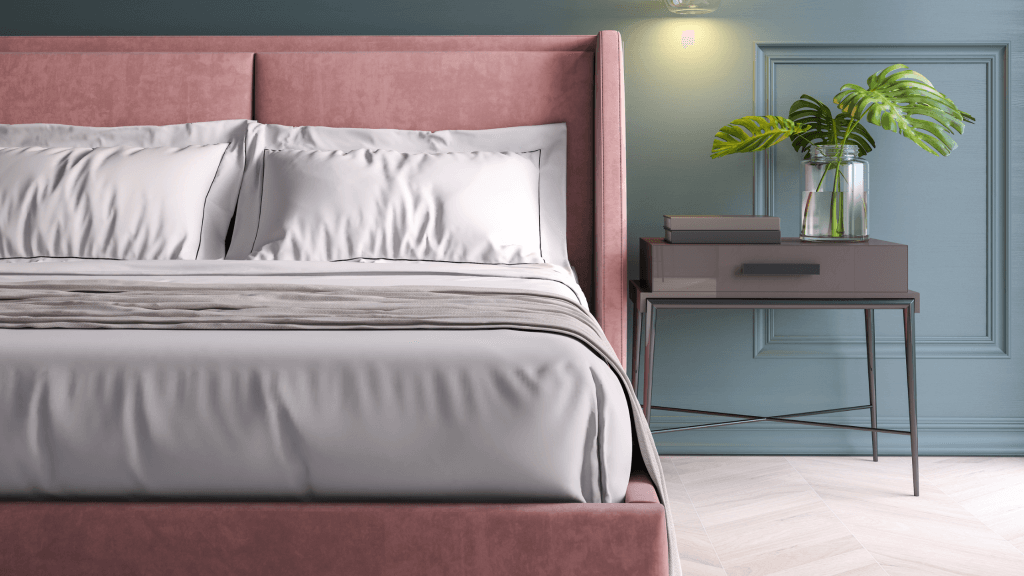
What is the Best Colour to Paint Skirting Boards?
Ultimately, the best colour for skirting boards depends on your personal taste and the overall style of your room. Consider working with the existing colour palette in your space and don’t be afraid to experiment with some stylish moulding ideas to really enhance your rooms.
If you’re unsure, go monochromatic with skirting boards that are the same shade as your walls. You could also opt for a contrasting look. Think: white skirting boards paired with dark walls and colourful skirting boards teamed with white walls.
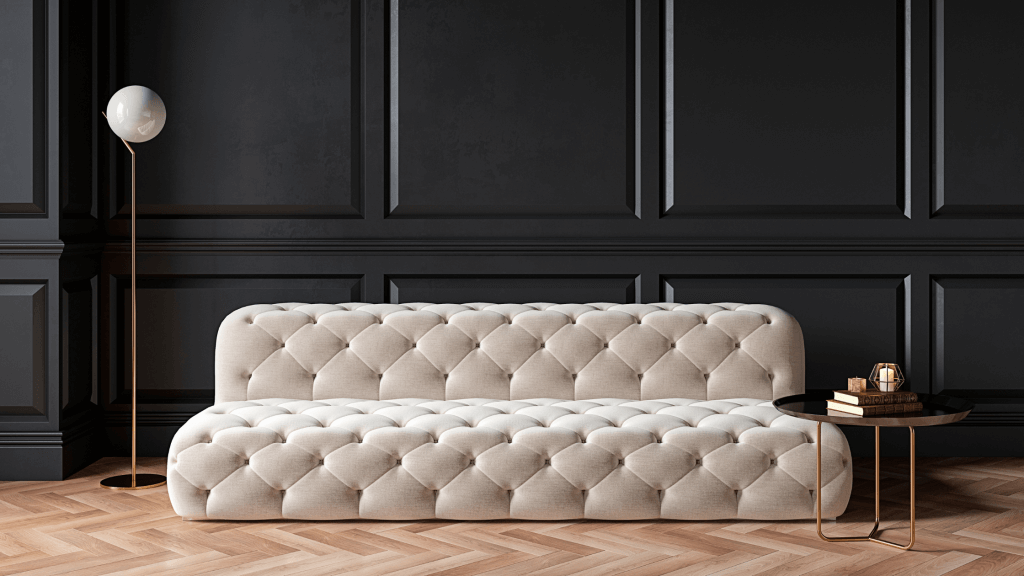
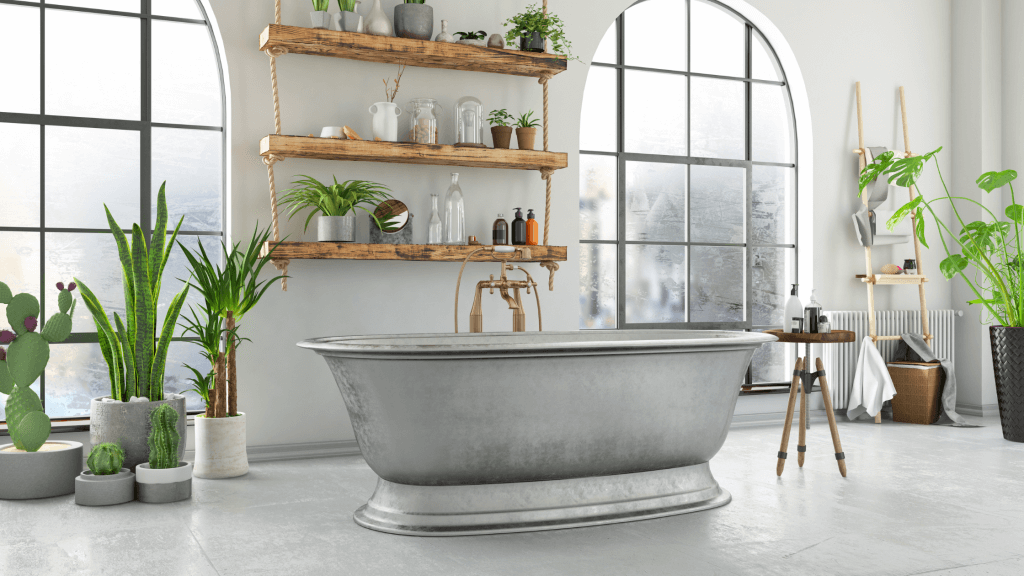
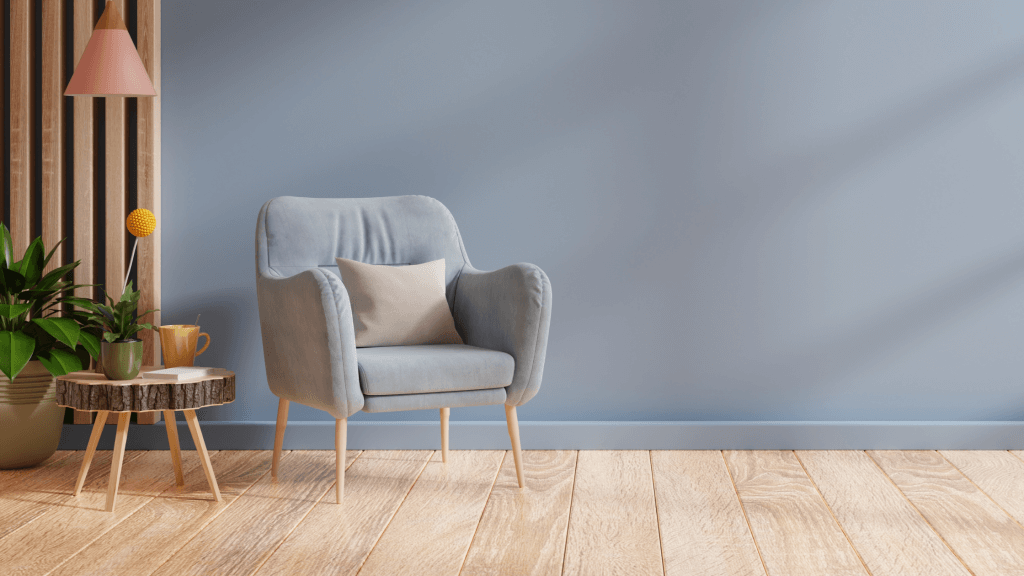
What is the Trend for Skirting Boards?
Black for Modernity
Black skirting boards and door frames are gaining popularity for a contemporary and edgy look. They pair well with most paint colours and create a striking contrast with lighter walls.
Earthy Tones
Warm and natural tones are another trend. Think browns, beiges, and terracotta hues for your skirting boards. These shades create a sense of warmth and can complement a variety of interior design styles.
Matching Door Trims
Painting your skirting boards the same colour as your door trims is a neat way to create a cohesive and streamlined look. This is particularly effective in minimalist or Scandinavian-inspired spaces.
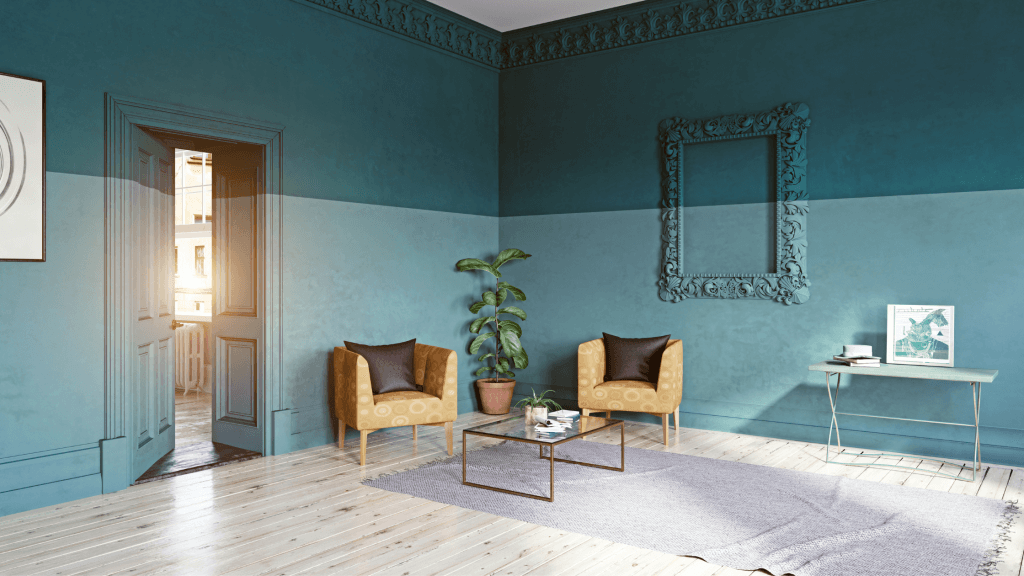
How to Modernise Skirting Boards
Use bold colours and feel inspired by the concept of “colour drenching”. This where a single colour extends across walls, trim, and even furniture. This can be applied to skirting boards too. Deep jewel tones like navy blue, forest green, or even a rich burgundy can add drama and sophistication.
Should Skirting Boards Be White or Wooden?
Both wood trim and white trim have their own set of advantages, making them the ideal choice depending on the desired aesthetic of your space. But what exactly are the benefits of wooden skirting boards?
Warmth and Character
Wood trim adds natural warmth and character to a room. The rich grain patterns and variety of wood species offer a timeless and classic look that complements many design styles, from traditional to contemporary.
Durability
High-quality wood trim, especially hardwoods such as oak, is incredibly durable and can last for decades with proper care. It can withstand bumps and scrapes better than some alternative materials.
Versatility
Wood trim comes in a wide range of styles, profiles, and finishes. This allows you to customise the look and feel of your space to match your taste. With staining or painting, you can further tailor the wood trim to your décor.
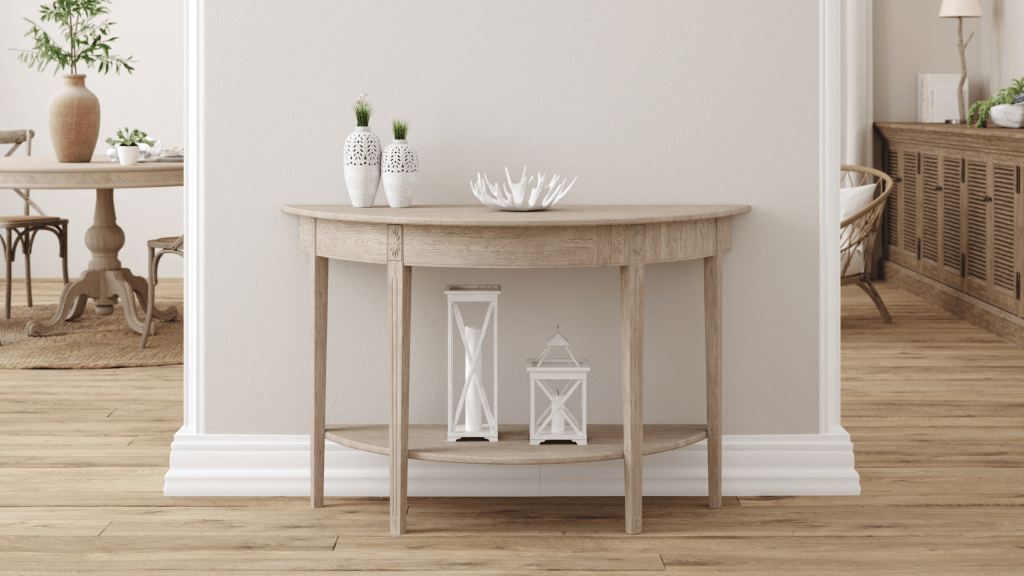
Should I Change Wood Trim to White?
If you have warm-toned furniture or flooring, wood skirting boards might be a more cohesive choice. Conversely, white trim can complement cool-toned elements.
Typically, the best colour for skirting boards comes down to your personal style and the overall feel you want to achieve in your room.
However it’s important to note that white trim can help brighten the space in rooms with limited natural light. But what are some of the other benefits of white skirting boards?
Clean and Bright
White trim creates a clean, crisp, and airy feel in a room. This is especially beneficial in smaller spaces as it helps them appear larger and more open.
Versatility
White trim pairs beautifully with almost any wall colour, making it a very versatile choice. It allows other design elements, like furniture and artwork, to take centre stage.
Modern Look
White trim is a staple of modern and minimalist design styles, offering a sleek and sophisticated feel.
Low Maintenance
White trim typically requires less upkeep than stained wood trim. It can hide minor imperfections and dust better than darker wood tones too.
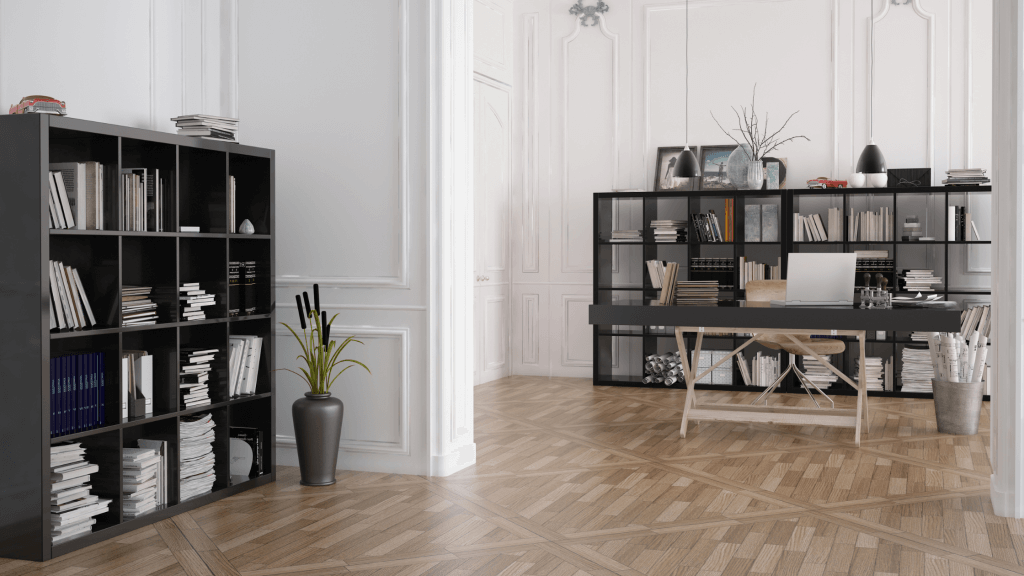
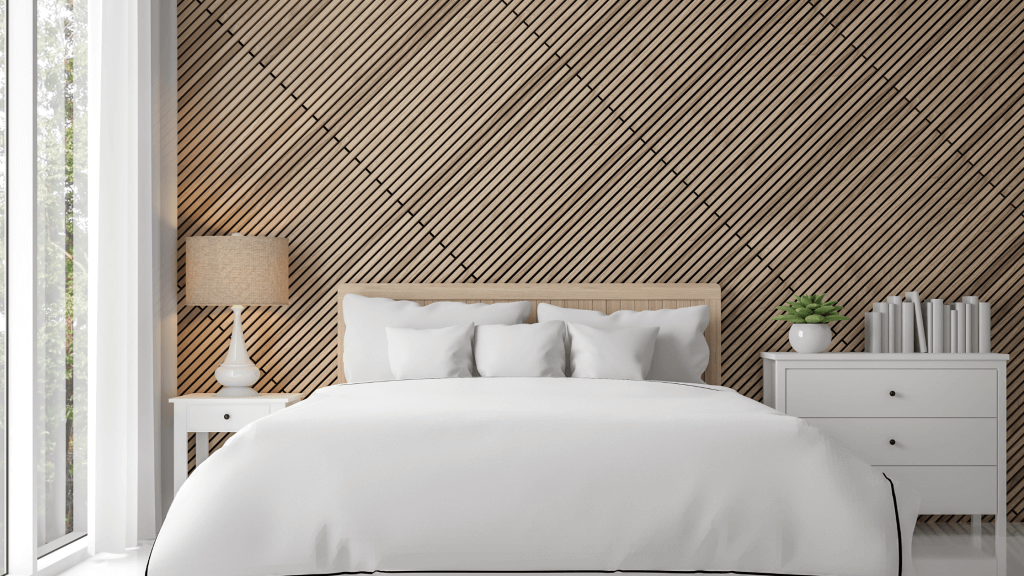
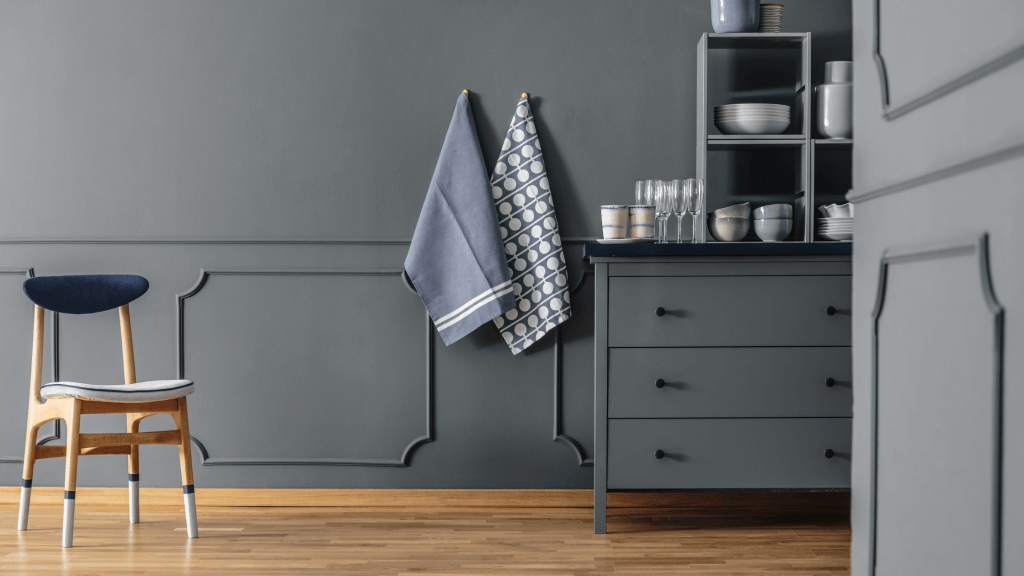
Is Wall Panelling in style?
Make skirting boards look better with the addition of on-trend wall panelling. The ideal way to draw the eye and create a spacious effect for a spotlight-stealing finish.
Wall panelling is having a moment for a reason. It elevates a space by adding texture, dimension, and visual interest. Gone are the days of flat walls – panelling creates a layered effect, drawing the eye and adding a touch of sophistication. This trendsetting feature can be adapted to various styles, from classic raised panels in a timeless entryway to modern fluted details on feature walls.
Whether you choose warm wood tones or a fresh coat of paint, wall panelling personalises your space and injects a dose of undeniable style.
Buy wall panelling online and capture the trend in your space. Browse our wall panelling collection today, find a design that complements your skirting boards and enjoy fast shipping within the UK.
Final Tips: Is There an Easy Way to Paint Skirting Boards?
Painting skirting boards all starts with choosing the right paint. Go for a water-based eggshell or satin paint specifically designed for woodwork.
Next, make sure to work in good lighting. natural light is ideal, but ensure you have adequate lighting to see what you’re doing and avoid missed spots.
Lastly, clean your tools to keep things hassle-free and ensure a perfect result. Regularly wash your brushes and roller with warm soapy water to prevent paint build-up and ensure a smooth finish.
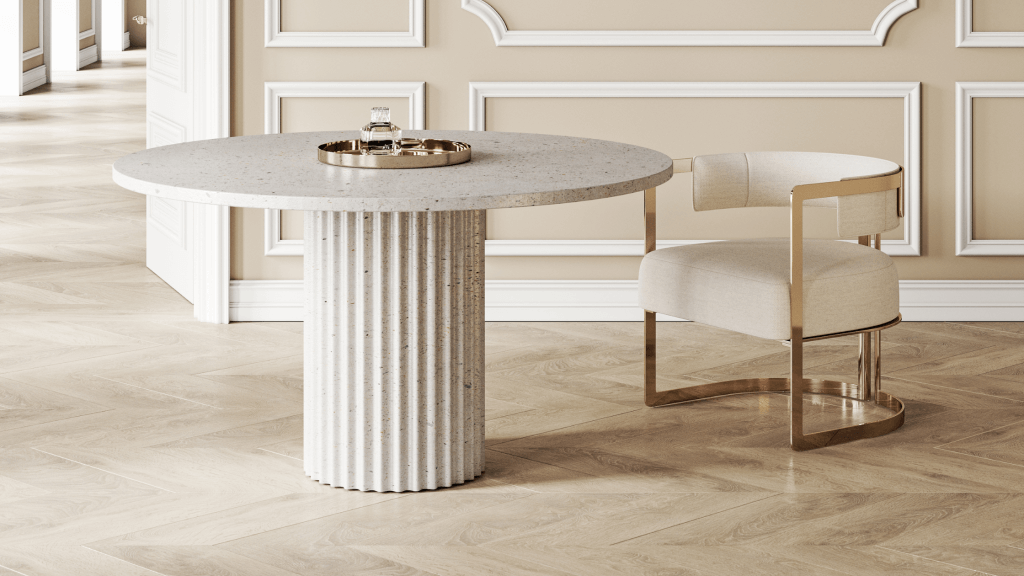
Buy Skirting Boards Online To Complete The Look
With a little patience and these handy tips, freshen up overlooked skirting boards and elevate the aesthetic appeal of every room with this quick and easy DIY project. Browse our skirting board selection (available in a range of colours and finishes) and achieve a whole new look with minimal effort. Don’t miss out! Place your order today.



